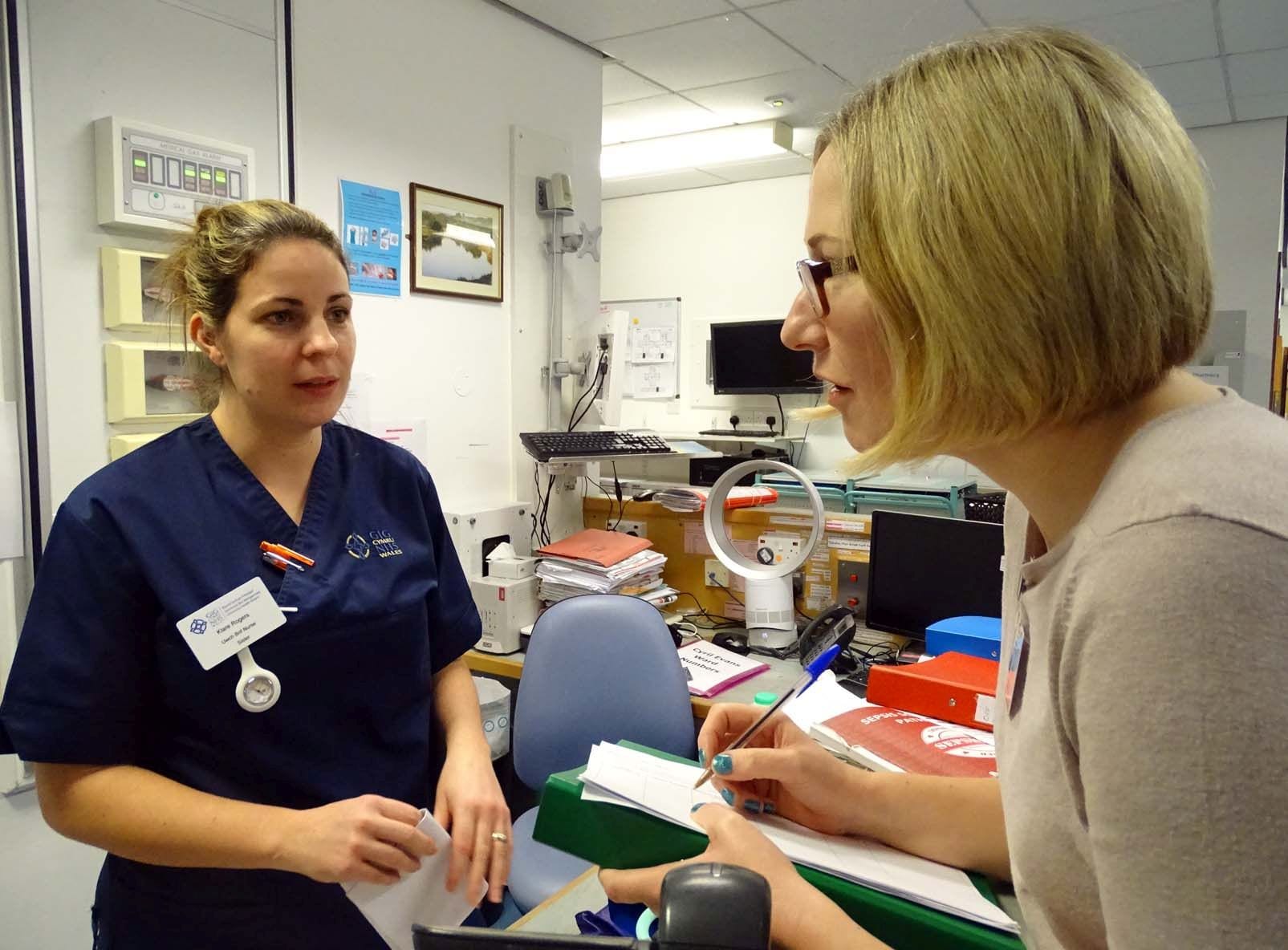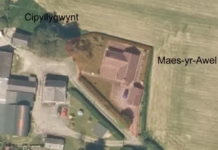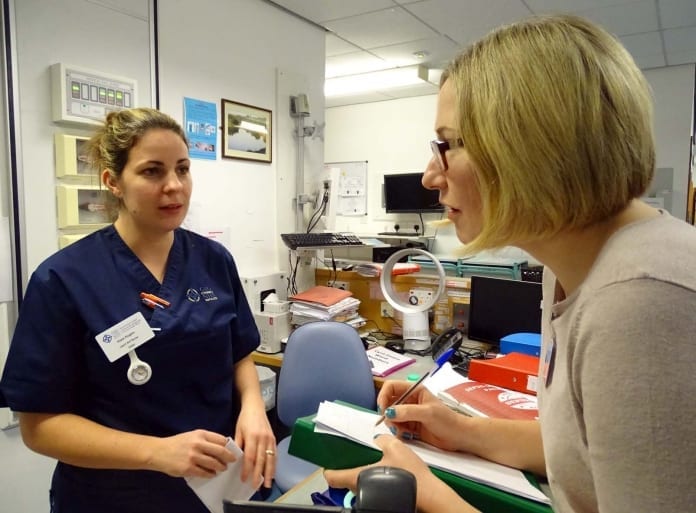My name is Abby Bolter and I am a senior communications officer with ABMU Health Board.
This winter I took part in Breaking the Cycle, an initiative designed to reduce hospital delays by getting office-based workers onto the wards to support front line staff. This is what happened.
Office-based workers like myself took to the wards as part of Breaking the Cycle (BTC), a two-week initiative designed to improve patient flow.
In my role as a ward liaison officer (WLO) at Morriston Hospital – a voluntary position just for BTC – my job was to act as a voice for the wards I was assigned to, which included Pembroke, wards G, H and also cardiac.
I was required to gather regular information from ward staff on patients who were definitely going to be discharged, those who might be discharged and those who were facing delays – so called RED patients – whether that be for tests, review or social care packages.
 Left: Abby Bolter, right, gets a briefing from Sister Klare Rogers on Cyril Evans ward
Left: Abby Bolter, right, gets a briefing from Sister Klare Rogers on Cyril Evans ward
At 8.30am, 12pm and 3pm, myself and the other WLOs gathered in the hospital’s operation centre to relay our information to the bed management team and the day’s silver commander.
Also present at the meeting were the full-time patient flow coordinators and representatives from pharmacy, radiology and other departments, who were able to escalate any outstanding issues.
One of the main aims of BTC is to focus all staff on achieving the best operational performance and best standard of care for our patients.
And it certainly felt as though I was a part of a huge team, whose clear goal is to make things better for our patients.
Going from a mainly desk-based job to a clinical setting was a challenge, especially as I have only been in the NHS for six months.
It was a steep learning curve becoming familiar with commonly-used abbreviations such as DOLS (deprivation of liberty service), INR (a type of blood test for clotting) and EDD (Expected Discharge Date).
But clinical staff and the patient flow coordinators, with whom I worked alongside, ensured I understood and had the correct information to relay.
My three shifts gave me a good insight into the incredibly hard and complex work that goes on daily – largely unseen by patients and many other staff – to keep the hospital and wider NHS running smoothly.

| [donate]
| Help keep news FREE for our readersSupporting your local community newspaper/online news outlet is crucial now more than ever. If you believe in independent journalism,then consider making a valuable contribution by making a one-time or monthly donation. We operate in rural areas where providing unbiased news can be challenging. |




















